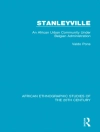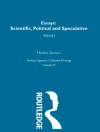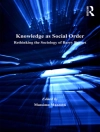Nurturing Our Humanity offers a new perspective on our personal and social options in today’s world, showing how we can build societies that support our great human capacities for consciousness, caring, and creativity. It brings together findings–largely overlooked–from the natural and social sciences debunking the popular idea that we are hard-wired for selfishness, war, rape, and greed. Its groundbreaking new approach reveals connections between disturbing trends like climate ch...
Nurturing Our Humanity offers a new perspective on our personal and social options in today’s world, showing how we can build societies that support our great human capacities for consciousness, caring, and creativity. It brings together findings–largely overlooked–from the natural and social sciences debunking the popular idea that we are hard-wired for selfishness, war, rape, and greed. Its groundbreaking new approach reveals connections between disturbing trends like climate change denial and regressions to strongman rule. Moving past right vs. left, religious vs. secular, Eastern vs. Western, and other familiar categories that do not include our formative parent-child and gender relations, it looks at where societies fall on the partnership-domination scale. On one end is the domination system that ranks man over man, man over woman, race over race, and man over nature. On the other end is the more peaceful, egalitarian, gender-balanced, and sustainable partnership system. Nurturing Our Humanity explores how behaviors, values, and socio-economic institutions develop differently in these two environments, documents how this impacts nothing less than how our brains develop, examines cultures from this new perspective (including societies that for millennia oriented toward partnership), and proposes actions supporting the contemporary movement in this more life-sustaining and enhancing direction. It shows how through today’s ever more fearful, frenzied, and greed-driven technologies of destruction and exploitation, the domination system may lead us to an evolutionary dead end. A more equitable and sustainable way of life is biologically possible and culturally attainable: we can change our course.












